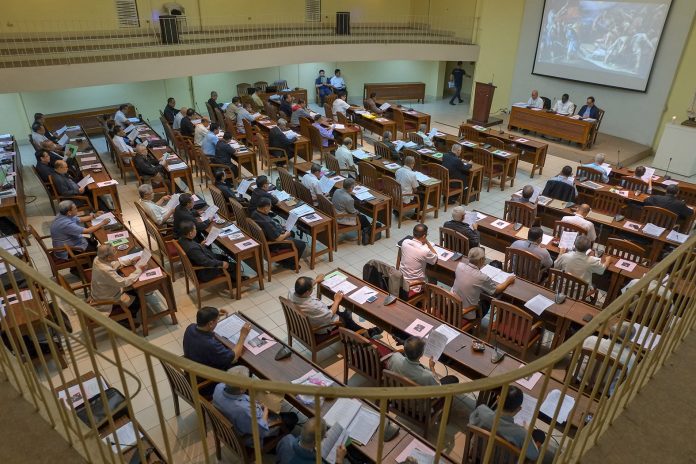In January 2022, the Catholic Bishops’ Conference of the Philippines (CBCP) committed to divest its financial assets from banks still supporting fossil fuels by 2025. It is one of the ways the Philippine Catholic community aims to “walk the talk” in terms of addressing the climate crisis, aligned with current global actions and Pope Francis’s messages in the encyclical Laudato Si’ and the Apostolic Exhortation Laudate Deum.
Despite this moral imperative, there remains a lack of significant divestment by Catholic shareholders in several Philippine corporations involved in coal or mining activities. Except for a few dioceses, congregations, and other entities, the trend continues for the financial assets of this sector being in these corporations that help enable their operations that cause ecological harms and injustices.
‘Walk the talk’
The process of divestment and subsequent reinvestment is considered as part of just energy transition and sustainable development. For the CBCP, it is an impactful way to signal to the Philippines and the world that it calls for the beginning of the end of the era of fossil fuels, especially coming off a landmark decision at the Dubai climate negotiations last year.
The Catholic community has provided critical leadership within the divestment movement in the Philippines. Its leaders and allies have delivered interventions in annual shareholder meetings, lobbied for coal divestment by Philippine banks, and advocated for more sustainable financing, aligned with the imperative of upholding ecological justice. These efforts have contributed to the pronounced coal divestment of banks such as BPI, RCBC, and Security Bank.
Nonetheless, the divest-invest process is a complex one that would take years to complete. While the policy environment on sustainable finance is steadily improving in the country, there are still many factors that are hindering the shift of financing from fossil fuels to renewable energy and other more sustainable ventures.
Among these is the prioritization of the current administration for the expansion of gas, yet another fossil fuel, and nuclear power, which comes with higher risks than other alternative energy sources. This is not to mention coal, mining, and other unsustainable businesses that are still prevalent in the country, despite the threat of the climate crisis and the cases of ecological degradation and social injustices associated with them in the past few decades.







